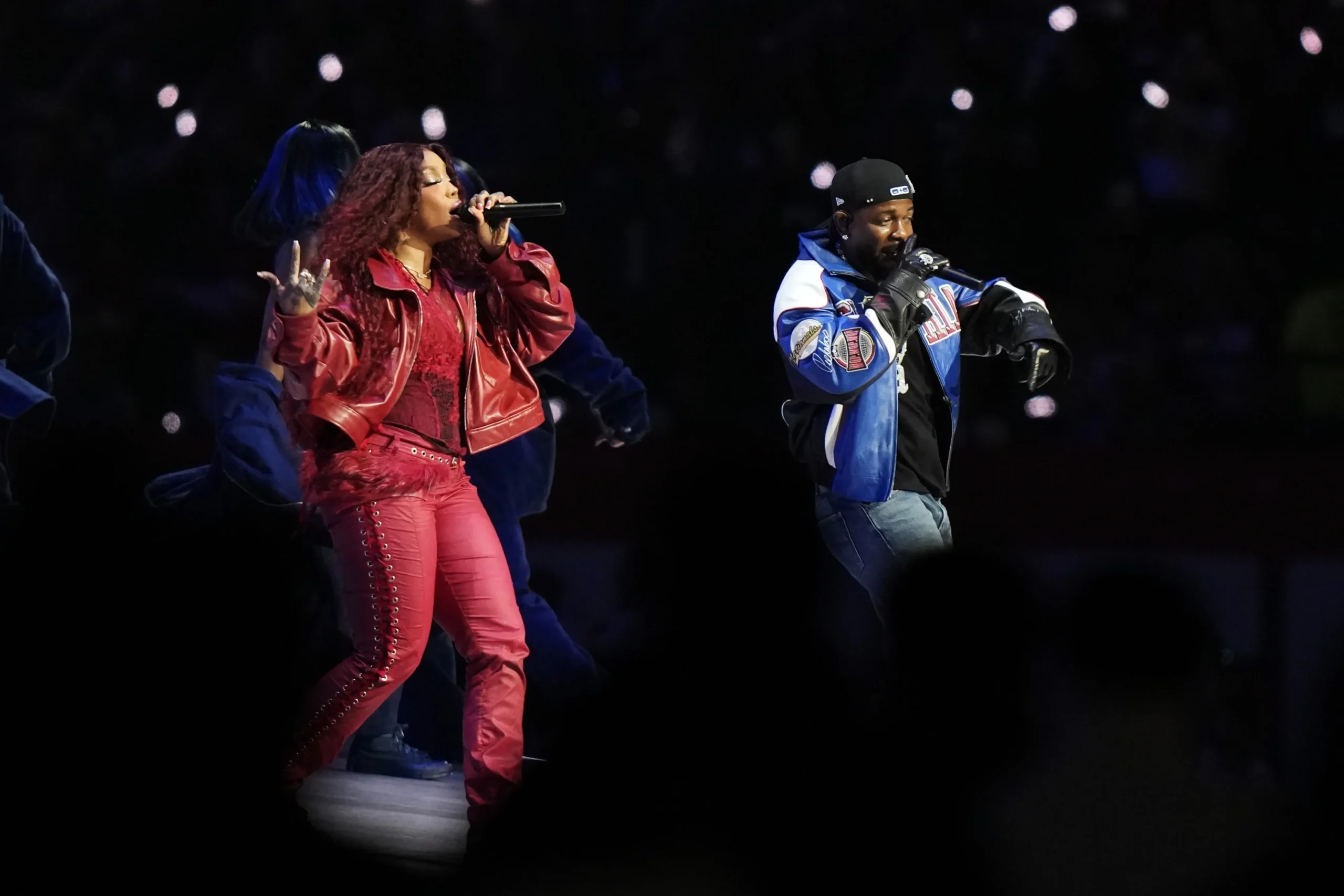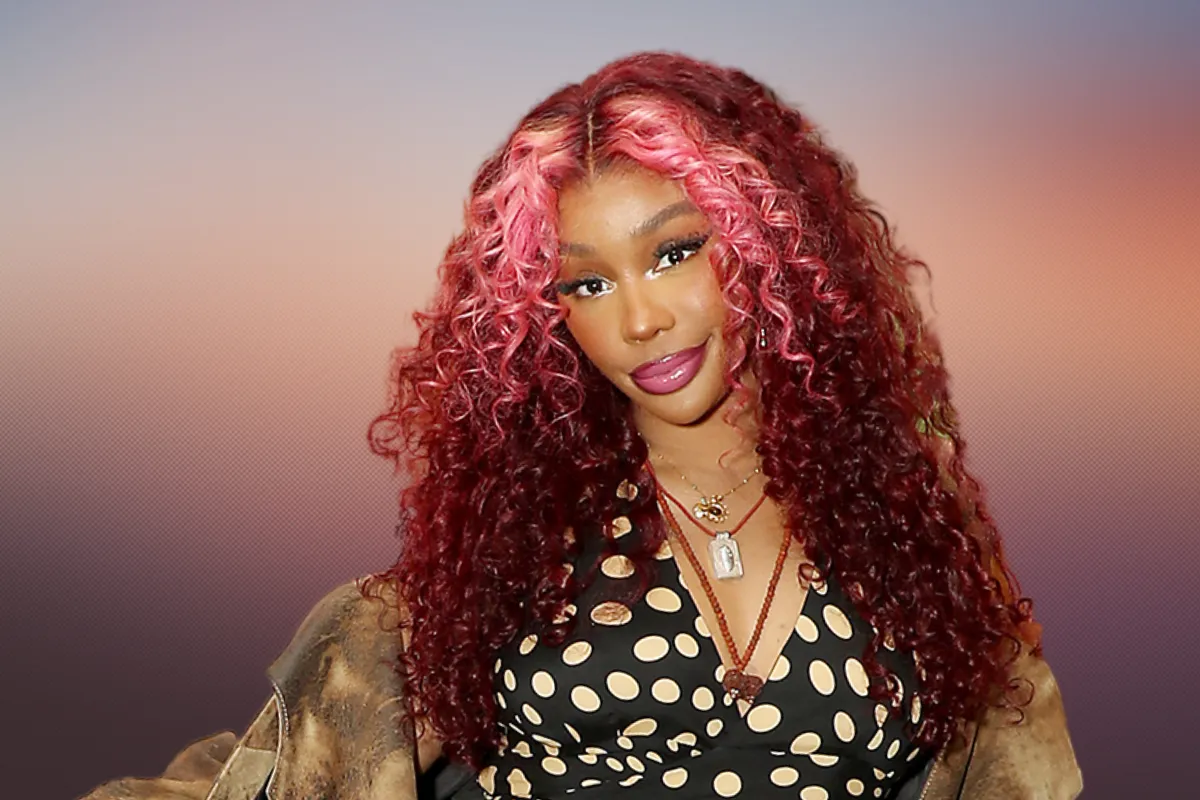

SZA Breaks Her Silence: ‘I Was Scared Kendrick Would Steal Everything — Even the Spotlight’
For years, fans have admired the effortless chemistry between SZA and Kendrick Lamar, two of the most influential voices to emerge from Top Dawg Entertainment (TDE). Their collaborations have made waves — from the ethereal “All The Stars” to countless onstage appearances that sent shockwaves across arenas. But behind the scenes, it turns out the emotions weren’t always as smooth as the performances. In a recent, emotionally charged interview, SZA opened up about her fears, insecurities, and the quiet pressure of sharing the limelight with a giant like Kendrick Lamar.

What she said was nothing short of stunning: “I was scared Kendrick would steal everything — even the spotlight.” And just like that, the internet exploded. For an artist known for her vulnerability in music, this rare glimpse into her private thoughts off-stage provided fans and critics with a whole new layer of appreciation — and concern.
The Burden of Sharing the Stage With Greatness
Throughout the interview, SZA made it clear that her admiration for Kendrick never wavered — but the respect came with an undertow of anxiety. “He’s a genius. Everyone knows that,” she admitted. “So when you’re planning a tour, or dropping an album in the same orbit as him, you start asking yourself, ‘Am I enough?’”
That kind of question doesn’t come from nowhere. When Kendrick Lamar is in the room — or on the ticket — people take notice. His reputation as a Pulitzer-winning lyricist, a performer who turns stages into sermons, can be intimidating. SZA, though an undeniable star in her own right, found herself battling an internal storm: a voice that kept whispering she might be eclipsed by someone more… iconic.
“There’s this thing that happens when someone that powerful walks into the conversation,” she said. “You feel like the world stops turning for you — and starts spinning around them.”
From Collaborators to Competitors?
For fans, the idea of SZA and Kendrick as anything but mutual supporters may come as a surprise. After all, “All The Stars,” their Grammy-nominated track for Black Panther, was a powerful testament to unity and creative synergy. But the song, according to SZA, was also a quiet turning point.
“It was beautiful to work on,” she noted. “But it was also the first time I realized just how huge his presence was. Not just musically, but culturally. After that song dropped, I kept hearing people say, ‘Kendrick’s song,’ and I’d think — wait, wasn’t I on that too?”
That sting lingered. Not because SZA lacked confidence in her artistry, but because in the world of headlines, album credits, and red-carpet questions, it often felt like Kendrick’s shadow stretched farther than her own spotlight. “You start wondering, are people here to see you, or are they hoping Kendrick might show up?”
The Emotional Toll of Invisibility
While some artists might brush off such concerns as petty or self-indulgent, SZA dug deeper, confronting the very real psychological impact of feeling unseen. “When you work your whole life to build your name, and someone else’s name still carries more weight — even in your moment — it can crush you,” she confessed. “And that’s not Kendrick’s fault. That’s the game. That’s the machine.”
What makes SZA’s confession even more powerful is her willingness to own both the jealousy and the shame that came with it. “I was mad at myself for even thinking it. I love him. He’s family. But I’m human. And in this industry, being human is the most dangerous thing you can be.”
This admission reveals the fragile tightrope female artists often walk — balancing vulnerability with strength, admiration with self-worth, and loyalty with the need to claim space.
Fears on Tour: The ‘SOS’ Era and a Risky Invitation
During her SOS Tour, which sold out massive venues across North America and Europe, there were whispers that Kendrick Lamar might make a surprise appearance. At first, fans were thrilled. But inside, SZA was conflicted.
“Everyone wanted me to bring him out,” she recalled. “My team. The fans. Even Kendrick was down. But I said no. Not because I didn’t love him — but because I needed one thing in my life to be mine.”
It wasn’t about ego. It was about reclaiming confidence in her own narrative. After years of features, collaborations, and group projects, SZA wanted this tour — this era — to be a reflection of her growth, her pain, and her triumph. “I had to know if I could carry the moment without anyone else’s name on the flyer,” she said. “And I did. I proved it to myself.”
That decision, she admitted, came with tears, sleepless nights, and the fear of backlash. “Some people were mad. Some said I was being selfish. But for once, I wasn’t apologizing for taking up space.”
Kendrick’s Response — And A Moment of Healing
So what did Kendrick Lamar think of all this?
According to SZA, their friendship remains strong — perhaps even stronger now. “I told him everything,” she said. “And he was nothing but love. He said, ‘You did what you had to do. You earned every second of that stage.’”
It was the kind of validation that doesn’t come from tweets or charts — but from someone who understands the unique weight of artistry. Kendrick, she said, never wanted to overshadow her. If anything, he always believed she’d shine brighter than she realized.
“He told me, ‘The real ones don’t compete — they co-exist,’” she revealed. “And that changed me. That healed me.”
A Candid Voice in an Industry Obsessed with Perfection
In an era when many artists curate every word and emotion through publicists and PR filters, SZA’s openness feels revolutionary. Her story is not just about the pressure of working with legends — it’s about the internal war between admiration and self-validation that many women in creative industries endure quietly.
“I think about how many other women are in rooms with powerful men, wondering if they’ll ever be seen on their own terms,” she said. “That’s why I’m telling my truth now. Because if I waited for the world to make space for me, I’d still be waiting.”
By breaking her silence, SZA didn’t just shed light on her personal journey. She cracked open a conversation about how we view talent, ownership, and visibility in music — and beyond. “You can love someone deeply, and still feel small in their presence. The key is learning how to grow anyway.”
Redefining Her Legacy — On Her Own Terms
Now, as SZA prepares for new projects, her energy has shifted. She’s no longer trying to escape the shadow of Kendrick Lamar — because she’s realized it was never his shadow to begin with.
“I had to stop seeing myself as secondary,” she said with quiet defiance. “No one can dim your light unless you give them the switch.”
And so, the woman once afraid of being overshadowed is now blazing her own path — unapologetically, powerfully, and visibly. The fears that once haunted her have become the fuel for her transformation.
“It’s not about being bigger than Kendrick,” she concluded. “It’s about being the biggest version of me.”



















